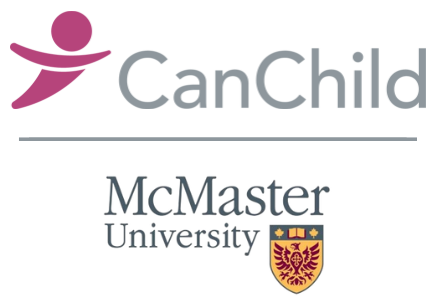This report focuses on what parents told us about the health conditions their children have, and how these conditions affected their daily lives. When we say “health”, we mean all the different functions of the whole body.
Read Resources
42 resources found
Move & Play Executive Summary
The purpose of the Move & PLAY study was to gain a better understanding of the child, family, and service delivery factors that support the development of movement abilities and participation in self-care, recreation, and play of preschool children with cerebral palsy (CP).
Read Resources
Parent to Parent
Helpful tip sheets written by parents who have children with Cerebral Palsy for parents.
Read Resources
Knowledge Broker Study Report
Knowledge brokering is the process of “bringing people together, to help them build relationships, uncover needs, and share ideas and evidence that will let them do their jobs better.
Read Resources
Knowledge Transfer in Health Care
In health care, there has been increasing recognition of the need to facilitate the transfer of research evidence into clinical practice and policy development.
Read Resources
Conceptual Model of the Move and PLAY study
A conceptual model is a diagram that shows different factors that we think may have an effect on a variety of outcomes, such as motor abilities, self-care abilities, and participation in play.
Read Resources
Integrated Knowledge Translation in Childhood Disability: Engaging with Partners Throughout the Research Process
This reflection paper is intended to raise awareness and stimulate thinking about Integrated Knowledge Translation (iKT) and how one might engage with a range of partners to develop iKT strategies.
Read Resources
What helps adolescents with cerebral palsy to be physically active? Developing a program to support youth based on focus groups.
In this communication we want to share our study protocol as part of a program to support physical activity for youth with cerebral palsy (CP) using a focus group methodology.
Read Resources
Transition to Adulthood Services and Supports for Youth with Disabilities in Ontario: Best Practice Guidelines
There are currently no best practice guidelines in Canada for service planning and delivery that address the transition to adulthood for youth with disabilities. This “In Brief” highlights the recommendations from a research study which used an evidence-based approach to develop such guidelines for services and supports in Ontario.
Read Resources
Determining Physical Activity Levels and Cardiovascular Health in Adults with Cerebral Palsy (Stay-FIT 20-40 years study)
In the Stay-FIT pilot study, it was determined that the physical activity level of adolescents with CP (mean age 13.5 years) was lower than that of their healthy peers. However, the vessel health was not statistically different.
Read Resources
